- Revenue Cycle Management
- COVID-19
- Reimbursement
- Diabetes Awareness Month
- Risk Management
- Patient Retention
- Staffing
- Medical Economics® 100th Anniversary
- Coding and documentation
- Business of Endocrinology
- Telehealth
- Physicians Financial News
- Cybersecurity
- Cardiovascular Clinical Consult
- Locum Tenens, brought to you by LocumLife®
- Weight Management
- Business of Women's Health
- Practice Efficiency
- Finance and Wealth
- EHRs
- Remote Patient Monitoring
- Sponsored Webinars
- Medical Technology
- Billing and collections
- Acute Pain Management
- Exclusive Content
- Value-based Care
- Business of Pediatrics
- Concierge Medicine 2.0 by Castle Connolly Private Health Partners
- Practice Growth
- Concierge Medicine
- Business of Cardiology
- Implementing the Topcon Ocular Telehealth Platform
- Malpractice
- Influenza
- Sexual Health
- Chronic Conditions
- Technology
- Legal and Policy
- Money
- Opinion
- Vaccines
- Practice Management
- Patient Relations
- Careers
The Search for Self Improvement: Some Schools for Sports
A new group of enthusiasts is apparently entering the arena of sports: adults, even retirees, whose careers didn't ever give them enough time to learn a sport - but now they have both the time and the money
Photography by the author
now
A new group of enthusiasts is apparently entering the arena of sports: adults, even retirees, whose careers didn’t ever give them enough time to learn a sport — but they have both the time and the money — and they are going to embrace it.
This enthusiasm seems to cover all branches of sports and has barely been touched by the recession. Students say it seems fairly easy to reach some degree of skill, certainly enough to make sports enjoyable and life more fun.
Lucky are those whose interest lies in the somewhat unusual sports because, there, the schools are clearly dominated by the best ones. So if you want to learn how to shoot or fly fish, you head for Orvis, and that company has lots of locations. It’s also been in business for many years as you can see from my somewhat dated photographs!
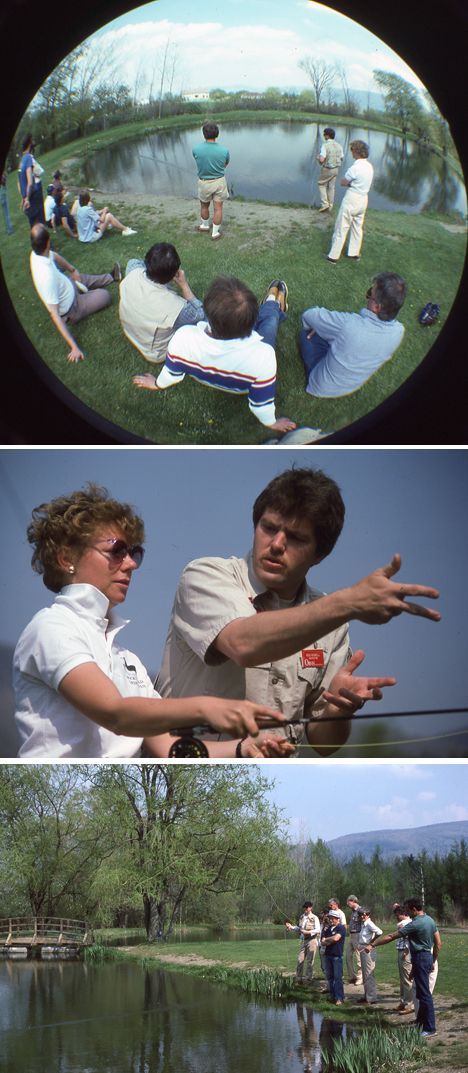
The Orvis Fly Fishing School shows a surprisingly scientific approach to fly fishing, surprising for such an old-world activity. How old? Well, Charles F. Orvis started making fishing rods in Vermont in 1856. The school developed because customers in the Orvis store kept asking too many questions.
Turns out there’s more to Orvis fishing than just sticking a worm on a bent pin and leaning over the water — although, at one stage, the instructor talking about the best flies holds up a huge handmade fly on a hook and says, “On the other hand, sometimes a fish will go for a Big Mac!”
Many of the students have been doctors, described by the instructors as “good with their studies but impatient, always impatient.”

The instructors at the Orvis Wingshooting School can be equally droll as I found when, flushed with pride, I finally broke a clay target coming in at a sharp, low angle to receive the response, “Wow, doc! Sometimes a blind squirrel finds an acorn!”
My instructor
had handed me two yellow ear plugs
earlier
and said, “Here take two of those and call me in the morning!”
The school fits the gun to the student, an important step as the modified Churchill technique it teaches requires students to shoot instinctively without aiming. Beginner mistakes are being too quick, overcorrecting and not bringing the stock tight enough into the face to just below the zygomatic arch.
“Get it into your cheek!” the instructors must say dozens of times each day but after two days it was our shoulders that told us we’d blasted 500 20-gauge shells into the Vermont skies.
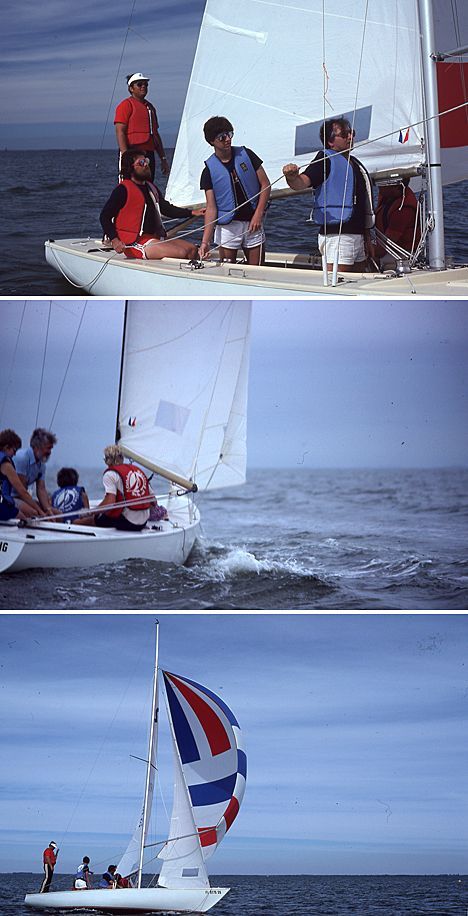
Sailing and rock climbing, likewise, have the acknowledged leaders in the sports schools. Award-winning husband and wife Steve and Doris Colgate came to a decision early in their careers that sailing classes might put innocents into danger on the seas unless the subject was taught properly. They started teaching Offshore Sailing School in 1964 and have put more than 125,000 students through their classes.
“Sailing” says Steve Colgate, “is within the reach of almost anyone. It’s fulfillment for almost any age and any personality.”
school
individual
He believes a sailing offers an advantage beyond an lesson: First, full-time instructors know the common problems of students. Second, they create continuity building on yesterday’s lesson. Third, they stop bad habits from developing by explaining the principles involved. And why is sailing a good discipline?
“Because it keeps you humble,” our instructor says. “You are struggling against Mother Nature and you will not always win!”
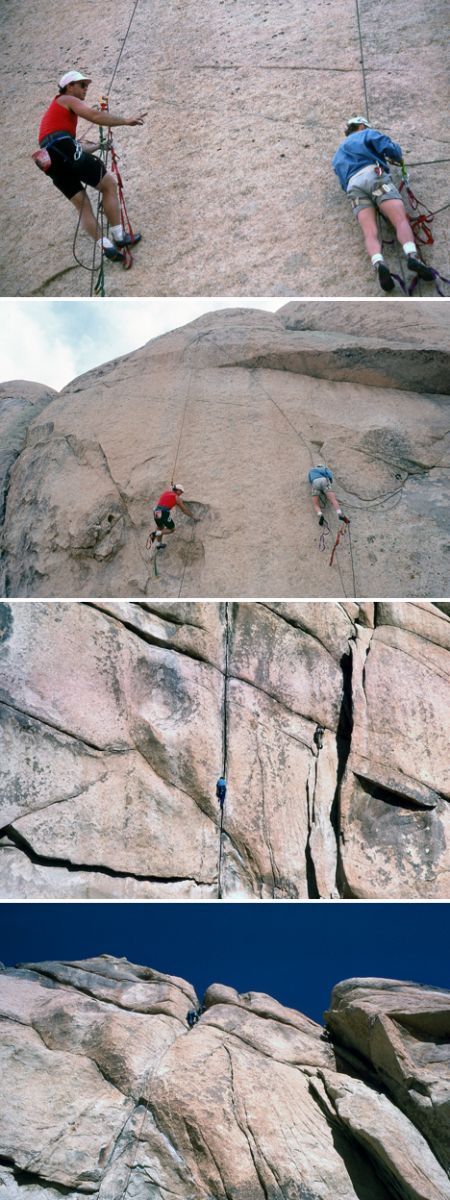
Outside Magazine.
Bob Gaines has also had a long career. His Vertical Adventures Rock Climbing School has been going high since 1983 and has been voted the top rock climbing school in America by the prestigious Blessed by the good weather of Southern California his school operates year round.
“Climbing is a physical challenge,” say Gaines, “Yet it’s a mental sport.”
He looks across the expanse of Joshua Tree National Monument and smiles at his memories. He remembers when the sport’s chief practitioners were social dropouts and almost hippie outcasts.
respectable
“Now,” he says, “for want of a better word, professional climbers have become .”
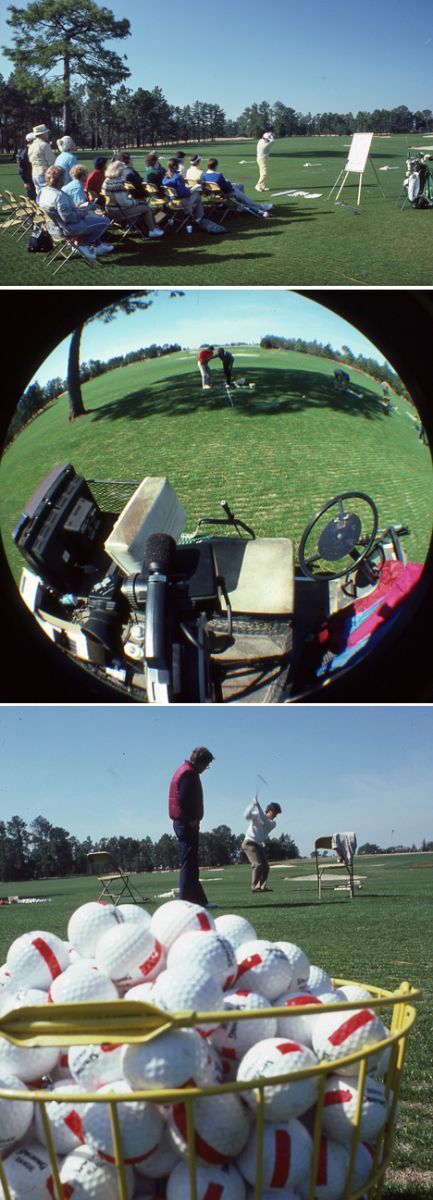
What about the ever-popular golf and tennis? The best schools in golf defy categorizing: Every major resort seems to have its own golf course and a claim about the skill of its golf pro. Golf instruction students probably make choices by location, although it’s probably true the best and most impressive school is the Pinehurst Golf Academy. So go and soak up the North Carolina weather and Pinehurst’s atmosphere, tradition and mystique.
A Pinehurst instructor says that the biggest that high handicap players make is that “they never practice — especially their short game. Between lessons I ask them, ‘Did you practice?’ and they always say, ‘No. I played four games and I didn’t play well!’”
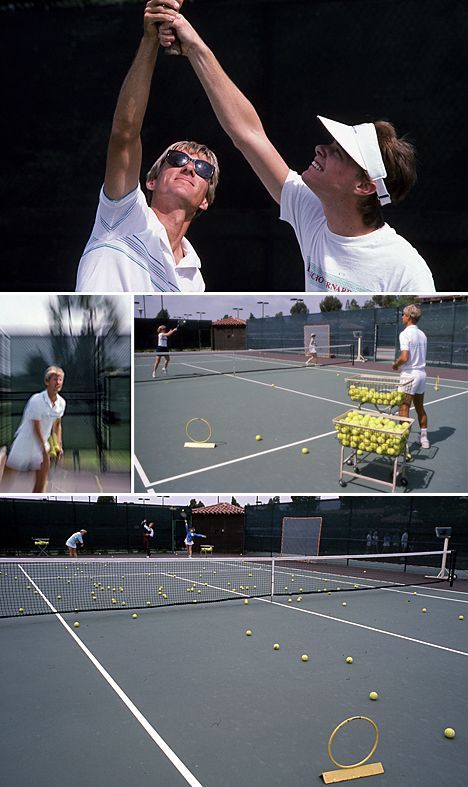
Tennis school is anyone’s guess. Unlike golf, which needs a whole course, resorts can just get a couple of courts and they’re in business. Tennis is a great game. It doesn’t beggar you like golf. Almost any lesson from a pro will help your tennis and a few lessons in tennis take you further than in any sport.
The first tennis academy in the United States was actually in the suburb of San Diego, Ranch Bernardo, where I ended up my practice days. For fun I took classes at this Rancho Bernardo Inn tennis school and won “the sweaty armpit award” for the most improved student. (The prize was an old, mounted, dissected tennis ball.)
So tennis schools vary from the no-nonsense Joan Ramey School in Kentucky to the John Newcombe Tennis Ranch in Texas and tennis resorts from Wild Dunes in South Carolina to our Californian La Quinta Resort in Palm Springs. For tennis school you have to do your research.
And when classes at any school in any sport are finished, what have you gained? Perhaps greater skill, increased insight, more respect for the pros, more tolerance for the duffers — and a degree of satisfaction now at having more fun in something that, at this moment, you do better.
The Man Who Cried Orange: Stories from a Doctor's Life.
The Andersons, who live in San Diego, are the resident travel & cruise columnists for Physician's Money Digest. Nancy is a former nursing educator, Eric a retired MD. The one-time president of the NH Academy of Family Practice, Eric is the only physician in the Society of American Travel Writers. He has also written five books, the last called
